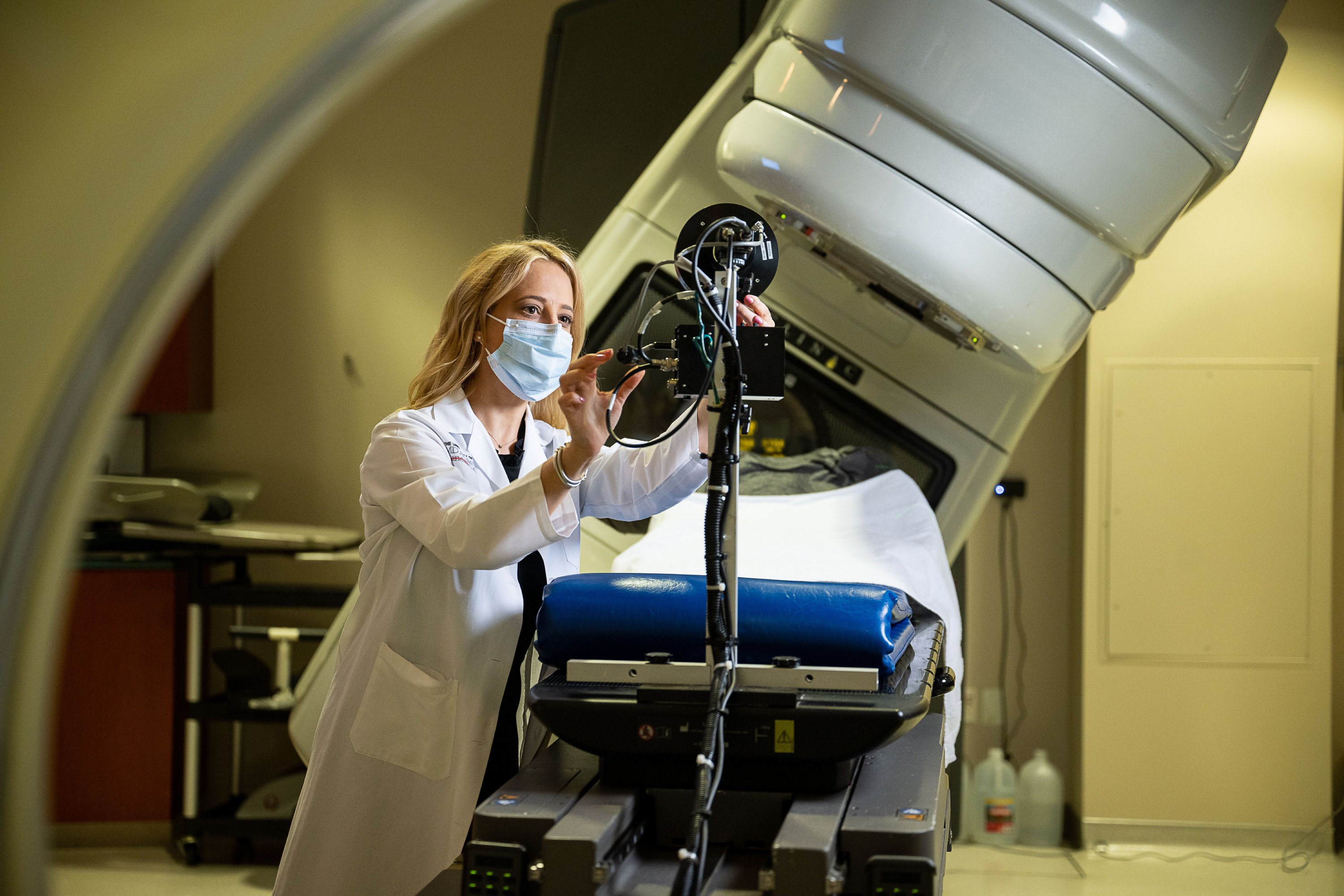Back
- Diseases
- Acoustic Neuroma (14)
- Adrenal Gland Tumor (24)
- Anal Cancer (68)
- Anemia (2)
- Appendix Cancer (16)
- Bile Duct Cancer (26)
- Bladder Cancer (72)
- Brain Metastases (28)
- Brain Tumor (232)
- Breast Cancer (714)
- Breast Implant-Associated Anaplastic Large Cell Lymphoma (2)
- Cancer of Unknown Primary (4)
- Carcinoid Tumor (8)
- Cervical Cancer (158)
- Colon Cancer (166)
- Colorectal Cancer (116)
- Endocrine Tumor (4)
- Esophageal Cancer (44)
- Eye Cancer (36)
- Fallopian Tube Cancer (8)
- Germ Cell Tumor (4)
- Gestational Trophoblastic Disease (2)
- Head and Neck Cancer (12)
- Kidney Cancer (128)
- Leukemia (342)
- Liver Cancer (50)
- Lung Cancer (286)
- Lymphoma (278)
- Mesothelioma (14)
- Metastasis (30)
- Multiple Myeloma (100)
- Myelodysplastic Syndrome (60)
- Myeloproliferative Neoplasm (4)
- Neuroendocrine Tumors (16)
- Oral Cancer (100)
- Ovarian Cancer (172)
- Pancreatic Cancer (160)
- Parathyroid Disease (2)
- Penile Cancer (14)
- Pituitary Tumor (6)
- Prostate Cancer (146)
- Rectal Cancer (58)
- Renal Medullary Carcinoma (6)
- Salivary Gland Cancer (14)
- Sarcoma (238)
- Skin Cancer (296)
- Skull Base Tumors (56)
- Spinal Tumor (12)
- Stomach Cancer (64)
- Testicular Cancer (28)
- Throat Cancer (92)
- Thymoma (6)
- Thyroid Cancer (96)
- Tonsil Cancer (30)
- Uterine Cancer (80)
- Vaginal Cancer (16)
- Vulvar Cancer (20)
- Cancer Topic
- Adolescent and Young Adult Cancer Issues (20)
- Advance Care Planning (10)
- Biostatistics (2)
- Blood Donation (18)
- Bone Health (8)
- COVID-19 (362)
- Cancer Recurrence (120)
- Childhood Cancer Issues (120)
- Clinical Trials (630)
- Complementary Integrative Medicine (22)
- Cytogenetics (2)
- DNA Methylation (4)
- Diagnosis (232)
- Epigenetics (6)
- Fertility (62)
- Follow-up Guidelines (2)
- Health Disparities (14)
- Hereditary Cancer Syndromes (126)
- Immunology (18)
- Li-Fraumeni Syndrome (8)
- Mental Health (116)
- Molecular Diagnostics (8)
- Pain Management (62)
- Palliative Care (8)
- Pathology (10)
- Physical Therapy (18)
- Pregnancy (18)
- Prevention (914)
- Research (392)
- Second Opinion (74)
- Sexuality (16)
- Side Effects (604)
- Sleep Disorders (10)
- Stem Cell Transplantation Cellular Therapy (216)
- Support (402)
- Survivorship (320)
- Symptoms (182)
- Treatment (1786)
Exercise for cancer survivors: A great way to boost your health
3 minute read | Published June 28, 2013
Medically Reviewed | Last reviewed by an MD Anderson Cancer Center medical professional on June 28, 2013
Earlier this month, during Cancer Survivorship Week, we had our first exercise flash mobs here at MD Anderson. The music began, and doctors, nurses, research staff and survivors spontaneously began dancing.
It was a lot of fun, but that's not the only reason we did it. We wanted to send the message that exercise can be both fun and beneficial for cancer survivors.
Why should a cancer survivor exercise?
Cancer survivors should exercise for the same reasons the rest of us should. Exercise reduces the risk of chronic diseases like cardiovascular disease, diabetes, arthritis and cancer. It can help prevent weight gain and improve your mood.
But those aren't the only reasons cancer survivors should exercise.
Exercise also curbs fatigue and other symptoms in cancer patients and survivors. In addition, several studies have shown that breast cancer and colon cancer survivors who exercise are less likely to have a recurrence of their cancer. Another recent study showed that prostate cancer survivors who exercised were less likely to die from prostate cancer.
What exercise should I do?
Research shows that exercise is safe and beneficial for most cancer patients and survivors. The American Cancer Society has published these exercise recommendations:
- Avoid inactivity and return to normal daily activities as soon as possible following your cancer diagnosis.
- Do 150 minutes of moderate intensity aerobic exercise or 75 minutes of vigorous intensity exercise per week.
- Include strength building exercise at least 2 days per week.
Moderate intensity aerobic exercise is activity that gets your heart pumping and makes you breathe harder. Fast walking is an example. If you are doing aerobic exercise you should be able to talk while you exercise, although you might feel a little out of breath.
If you're doing vigorous exercise, your heart pumps even faster and you will be breathing hard. You can still talk, but only a few words at a time.
Strength building exercise should involve all major muscle groups - including arms, shoulders, back, abdominals, hips and legs. If you are exercising with weights, start with lighter weights and increase the amount you're lifting gradually.
Patients and survivors with certain conditions and health problems may need to adapt their exercise routine. For example, survivors with peripheral neuropathy (tingling or pain) in their feet or legs should consider exercise with a low risk of falling, such as riding a stationary bicycle. Or if a survivor has severe fatigue, he or she could do lighter exercise of shorter duration -- say, 10 minutes per day -- until fatigue improves. The important thing is to be as active as you can be, and avoid long periods of sitting.
How do I get started?
Here are some tips for cancer survivors to get started with exercise:
- Start slowly. If you haven't exercised in a while -- or ever -- start with shorter exercise sessions and increase the time you exercise bit by bit. You'll be doing 150 minutes a week in no time!
- Break it up. If you don't have the time or energy for a longer session, try exercising for just 10 minutes. Ten minutes of exercise 3 times a day is just as good as 30 minutes at one time.
- Choose exercise you enjoy. Try different types of exercise, like walking, dancing or biking, to see what you like. If you can't find an exercise you like, pair it with something you do enjoy. For example, you could walk on a treadmill while watching your favorite movie.
- Set specific goals, and keep track of how you do. Your goal at the beginning could be to walk for 15 minutes after lunch on Tuesday, Thursday and Saturday. Keep track of your exercise on a calendar to see progress toward your goal.
- Don't forget to reward yourself for achieving your exercise goals.
Exercise is an excellent tool to help you improve your health and recover from cancer. So, find an exercise you enjoy, make a plan, and start moving!
Karen Basen-Engquist, Ph.D., is professor in Behavioral Science and director of the Center for Energy Balance in Cancer Prevention and Survivorship.






